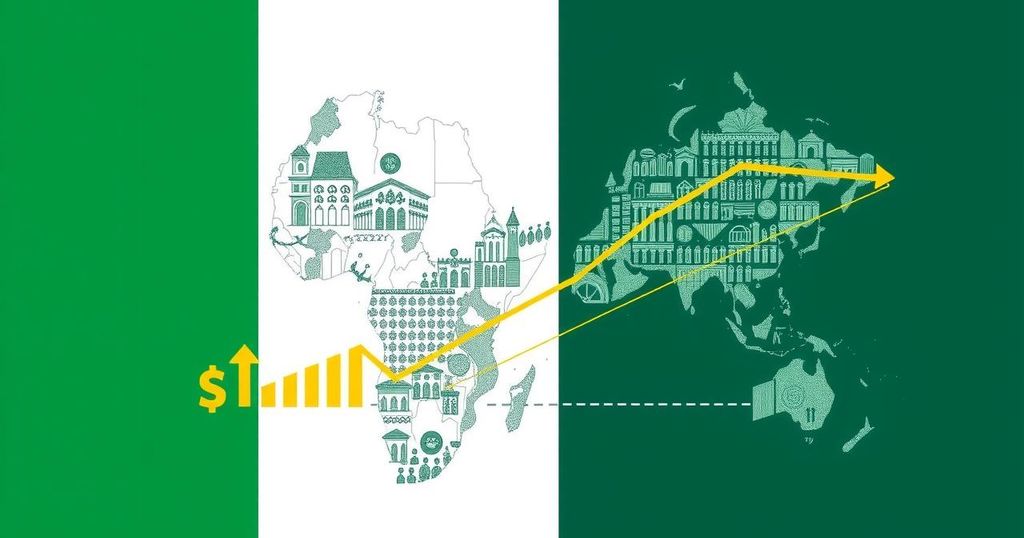The Nigerian government will rebase its GDP and CPI by 2025, aiming to reflect the informal sector’s contribution. This move is essential as Nigeria targets a $1 trillion GDP, especially following the significant boost from the last rebasing in 2014. Despite ambitious plans, the country faces critical economic challenges that require comprehensive reforms for sustainable growth.
The Nigerian government is set to rebase its Consumer Price Index (CPI) and Gross Domestic Product (GDP) by 2025, aiming to integrate the substantial informal sector that comprises 60% of the economy. This initiative is designed to enhance the accuracy of economic policy and boost investor confidence as Nigeria pursues its ambitious goal of reaching a $1 trillion GDP. Historically, a previous rebasing exercise in 2014 catapulted Nigeria to the largest economy in Africa, surpassing South Africa after its GDP grew significantly due to better measurement methodologies. However, current economic struggles suggest that this rebasing will not suffice without comprehensive reforms.
Investors are now more discerning, favoring tangible economic growth over statistical embellishment. The recent updates to unemployment data methods have misleadingly depicted an improved situation, masking the actual crisis facing many Nigerians. Though the methodology for GDP calculation adheres to global standards, the reality indicates a decline in Nigeria’s GDP over the past nine years, alongside projections of a further drop in economic standing.
The new administration, in its quest for economic reform, has taken drastic steps, including the removal of long-standing petrol subsidies, which have contributed to rampant inflation and high energy costs. The impact has been severe, with millions suffering from food insecurity and significant multinational exits from Nigeria due to an inhospitable business environment.
Critics argue that Nigeria’s earlier GDP growth was artificially inflated, and without foundational reforms addressing core issues—such as security, foreign exchange volatility, and infrastructure—the forthcoming rebase will merely be a cosmetic change. A strategic overhaul, informed by a structured economic blueprint, is vital for fostering genuine growth and recovery, distinguishing long-term solutions from short-term fixes.
The article discusses Nigeria’s plan to rebase its Consumer Price Index and GDP by 2025, focusing on integrating the informal sector into its economic calculations. This decision is strategic as Nigeria aims to enhance its economic policies and restore investor confidence amidst current economic challenges. The historical context of Nigeria’s previous rebasing in 2014, which previously elevated it to Africa’s largest economy, highlights the significance of accurate economic data, while recent economic turmoil calls into question the sustainability of such statistics without meaningful reforms.
In conclusion, Nigeria’s initiative to rebase its GDP and CPI by 2025 aims to improve the accuracy of economic measures reflecting the informal sector’s impact. However, without addressing critical economic issues through fundamental reforms, this rebasing may only provide a superficial enhancement to Nigeria’s economic image. The nation’s prospects for genuine growth depend on comprehensive strategies and a commitment to tackle the underlying problems that hinder progress.
Original Source: punchng.com






